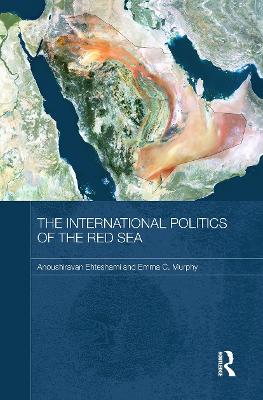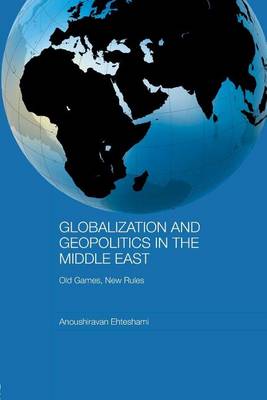Durham Modern Middle East and Islamic World
2 total works
The International Politics of the Red Sea
by Anoushiravan Ehteshami and Emma C. Murphy
This pioneering book is the first comprehensive study of the Red Sea as a sub-region of the international system in its own right. Examining the international politics of the Red Sea region from the Cold War to the present day, it argues that the Red Sea area demonstrates the characteristics of a sub-regional system, given its increasing economic and social interdependence, greater regional integration, and flows of resources across it. It details how stronger regional powers - Egypt, Israel and Saudi Arabia - which co-habit the sub-region with much weaker, vulnerable and fragile states, are seeking to stamp their own authority on this dynamic sub-region. They have attempted to do so, the authors show, through extension of their military and economic influence where ever possible, while also forging regional partnerships aimed at protecting their interests or to fend off possible encroachment of others. The book discusses in great detail the security and military dynamics of the sub-region; land and maritime borders; as well as economic issues, including trade, migration, capital flows and transport. It covers developments across the Red Sea and also within all the states of this newly-forming sub-region.
Examining globalization in the Middle East, this book provides a much needed assessment of the impact of globalization in the `greater' Middle East, including North Africa, in the context of the powerful geopolitical forces at work in shaping the region today.
Written by a well-known authority in this area, this book demonstrates that, unlike in other regions, such as East Asia, geopolitics has been a critical factor in driving globalization in the Middle East. The author argues that whereas elsewhere globalisation has opened up the economy, society, culture and attitudes to the environment; in the Middle East it has had the opposite effect, with poor state formation, little interregional trade, foreign and interregional investment, and reassertion of traditional identities.
This book explores the impact of globalization on the polities, economies and social environment of the greater Middle East, in the context of the region's position as the central site of global geopolitical competition at the start of the twenty-first century.

